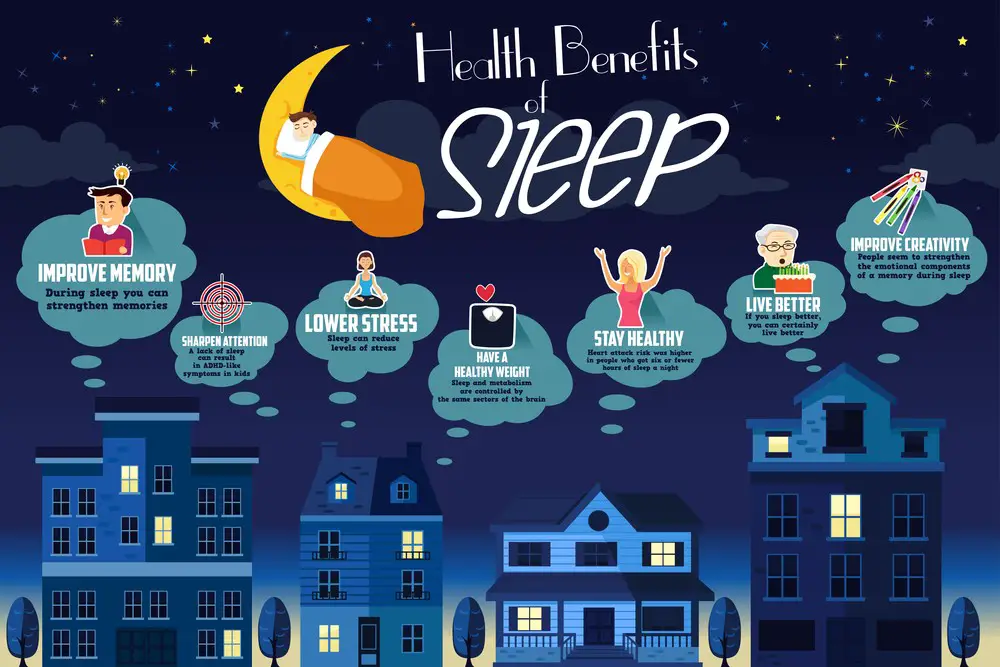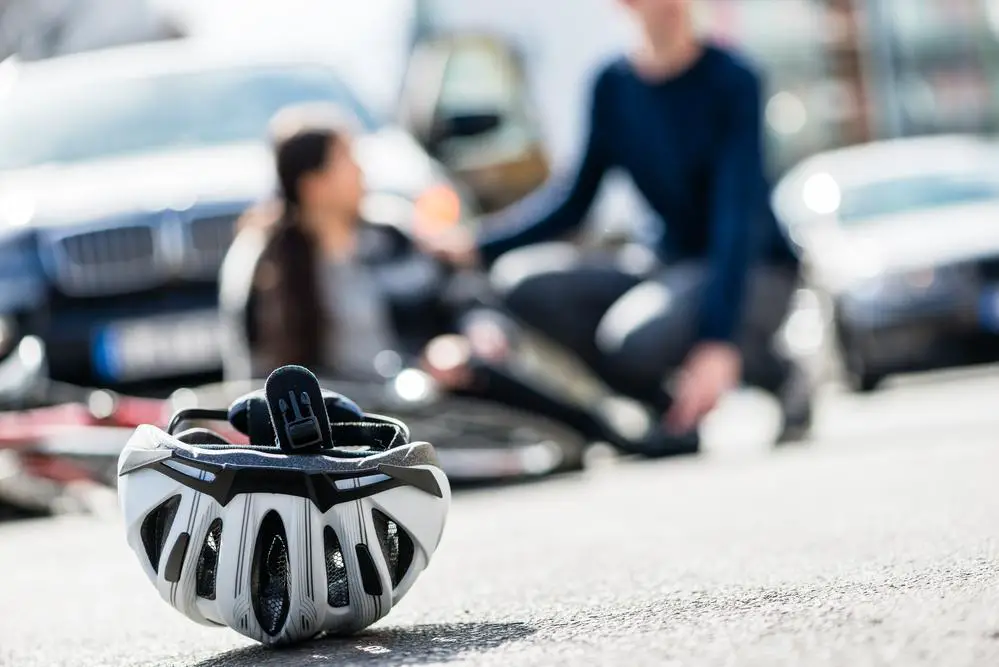As a BetterHelp affiliate, we receive compensation from BetterHelp if you purchase products or services through the links provided
Bicycle accidents, with their physical and emotional toll, necessitate a thorough approach to recovery. Beyond the immediate physical rehabilitation, addressing the mental and emotional aftermath is crucial. This guide delves into the nuanced steps to take in a post-bicycle accident, focusing on mental well-being and ensuring restful sleep during this challenging time.
Acknowledge Your Emotions
The aftermath of a bicycle accident can unleash a flood of emotions. It’s vital to recognize and embrace these feelings, understanding that fear, anxiety, and frustration are natural responses. Denying or suppressing these emotions can impede the recovery process. Take the time to reflect on your emotional state. This self-awareness lays the foundation for a more resilient mental recovery.
Discussing your emotions with friends, family, or a mental health professional provides an outlet for expression. Sharing your experience can alleviate the emotional burden and foster understanding and support. In this phase, the goal is not to overcome these emotions immediately but to acknowledge and gradually navigate through them.
Legal and Financial Considerations
Addressing the practical aspects of a bicycle accident is integral to comprehensive recovery. Consulting with a personal injury attorney ensures you understand your rights and explores avenues for compensation. Resolving legal and financial matters can provide a sense of closure, alleviating additional stressors that might impede your mental recovery.
Take the time to document the incident thoroughly and collect any relevant information. A clear understanding of the legal and financial implications enables you to navigate this aspect of recovery confidently, minimizing uncertainties and contributing positively to your overall well-being. Hire a lawyer who represents cyclists to ensure your best interests are protected. Even if you do not pursue legal action, having an attorney review your case can provide valuable insights and peace of mind.
Seek Professional Support
 While sharing your feelings with loved ones is valuable, seeking professional support is an essential step in navigating the complex emotional aftermath. A mental health professional, such as a psychologist or counselor, can provide expert guidance tailored to your specific needs. Through therapy, you can explore coping mechanisms, identify triggers, and work towards overcoming any lingering anxiety or post-traumatic stress disorder (PTSD).
While sharing your feelings with loved ones is valuable, seeking professional support is an essential step in navigating the complex emotional aftermath. A mental health professional, such as a psychologist or counselor, can provide expert guidance tailored to your specific needs. Through therapy, you can explore coping mechanisms, identify triggers, and work towards overcoming any lingering anxiety or post-traumatic stress disorder (PTSD).
Professional support offers a structured space to unpack and process your experiences, empowering you with tools to manage your mental well-being. It’s a proactive step toward fostering resilience and developing strategies for the psychological challenges that may arise during your recovery journey.
Prioritize Self-Care
 Self-care is a cornerstone of mental recovery. Ensuring your basic needs are met – from maintaining a nutritious diet to staying adequately hydrated – lays a strong foundation for emotional well-being. Incorporating activities that bring joy and relaxation is equally vital. Whether it’s engaging in a hobby, taking leisurely walks, or spending time in nature, these moments contribute significantly to your overall mental health.
Self-care is a cornerstone of mental recovery. Ensuring your basic needs are met – from maintaining a nutritious diet to staying adequately hydrated – lays a strong foundation for emotional well-being. Incorporating activities that bring joy and relaxation is equally vital. Whether it’s engaging in a hobby, taking leisurely walks, or spending time in nature, these moments contribute significantly to your overall mental health.
Physical activity, within the bounds recommended by your healthcare provider, is also a form of self-care. Exercise releases endorphins, the body’s natural mood enhancers, promoting a positive mindset. By prioritizing self-care, you actively invest in your mental and emotional resilience, aiding the overall healing.
Establish a Support System
Building a robust support system is pivotal in navigating the emotional aftermath of a bicycle accident. Open communication with friends and family creates a network of understanding and empathy. Share your thoughts and concerns openly, allowing others to provide emotional support.
Beyond personal connections, consider joining support groups or online communities where individuals with similar experiences share insights and coping strategies. Connecting with people who have faced similar challenges fosters a sense of camaraderie, reminding you that you are not alone on this journey.
Develop a Sleep Routine
 Quality sleep is often elusive after a traumatic event. Establishing a consistent sleep routine becomes paramount in promoting mental well-being. Create a calming bedtime ritual, such as reading a comforting book or practicing mindfulness exercises. Diminish screen time before bed, ensuring your sleeping environment is conducive to rest.
Quality sleep is often elusive after a traumatic event. Establishing a consistent sleep routine becomes paramount in promoting mental well-being. Create a calming bedtime ritual, such as reading a comforting book or practicing mindfulness exercises. Diminish screen time before bed, ensuring your sleeping environment is conducive to rest.
If sleep disturbances persist, seeking guidance from a healthcare professional can be beneficial. They may provide insights into improving sleep hygiene, recommend relaxation techniques, or, if necessary, explore medical interventions to aid in your journey toward restful sleep.
Gradual Return to Physical Activity
As advised by your healthcare provider, participating in physical activity plays a crucial role in both physical and mental recovery. It’s recommended to start with low-impact exercises that match your current physical abilities. This may involve going for short walks, doing some light stretches, or following a physical therapist’s recommendations.
Physical activity enhances your overall mood through the release of endorphins and contributes to a sense of accomplishment. Listening to your body and progressing comfortably ensures a gradual and sustainable return to an active lifestyle.
The aftermath of a bicycle accident is a challenging time, both physically and emotionally. Remember to be patient and compassionate with yourself during this process, as healing takes time. With the right support and strategies, you can overcome the lasting effects of a bicycle accident and emerge stronger on the other side. Remember that every individual’s recovery journey is unique, so it’s essential to find what works best for you and continue progressing toward mental well-being and restful sleep. Take care of yourself, prioritize self-care, and move forward one step at a time towards a brighter future.
- 5 Helpful Ideas for Managing Stress During a Plumbing Emergency - April 24, 2025
- Buying a Franchise Without Losing Your Mind - April 24, 2025
- 3 Ways Wearing a Hat Can Help Lower Your Stress Levels - April 19, 2025
This site contains affiliate links to products. We will receive a commission for purchases made through these links.



